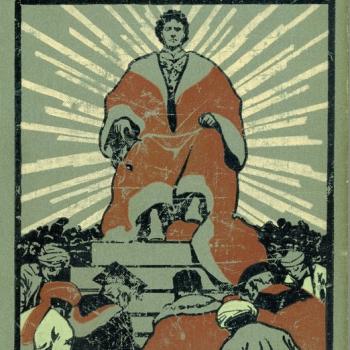Gregory remarks that "In a marvelous way, God's mercy arranged that the disbelieving disciple, in touching the wounds of his master's body, heals our own wounds of disbelief. The disbelief of Thomas has done more for our faith than the faith of all the other disciples."
Up to this point in John's gospel, only one type of true belief had been possible; namely, a belief based on the visible presence of Jesus. But with the resurrection and the coming of the Holy Spirit, a new kind of belief emerged based on the invisible presence of Christ. "Blessed," Jesus said, "are those who have not seen and yet believe." Faith became the means of authentication, defined by the author of Hebrews as, "being sure of what we hope for and certain of what we do not see." "Although you have not seen Jesus, you love him," Peter would write, "and even though you do not see him now, you believe in him and rejoice with an indescribable and glorious joy, for you are receiving the outcome of your faith, the salvation of your souls." Paul put it like this: "We live by faith and not by sight."
Though it does not view with the senses, faith as spiritual vision nevertheless knows the reality. The crucified and risen Christ is Lord and God, and therefore has staked his claim on the world. But such a claim comes off as absurd in the eyes of those who judge by appearances. What kind of Lord and God dies so miserably at the hands of, and for the sake of, evil-doers? What kind of God hazards the salvation of the world on the witness of a misfit band of losers and cowards? What kind of God redeems suffering rather than annihilating it? Clearly a God whose ways aren't our ways, whose wisdom looks like foolishness, whose mind we cannot know, whose decisions we cannot calculate and whose actions we cannot manipulate. The kind of God who operates through faith; the kind of God who acts through our faith.
"What follows is reason for great joy," Gregory wrote. "Blessed are those who have not seen and have believed. There is here a particular reference to ourselves; we hold in our hearts one we have not seen in the flesh. We are included in these words, but only if we follow up our faith with good works of faith. The true believer practices what he believes."
Gregory humbly practiced his faith his entire life, which is why upon his death, he was acknowledged as the Great, in line with Jesus' declaration that the least will be the greatest. Along with Ambrose, Augustine, and Jerome, Gregory ranks as one of the Four Doctors of the Church, the most influential teachers of Latin Christianity.
"It is the wisdom of the just never to pretend anything for show," he preached. "Love the truth as it is and avoid what is false. Do what is right without reward and be more willing to put up with evil than to perpetrate it. Do not seek revenge for wrong, but consider as gain any insult for truth's sake."
"The one ruled by [Christ's] love shows patience by bearing wrongs; kindness by generously repaying evil with good. He harbors no evil thoughts. Loving others as himself, he takes much pleasure in whatever good he sees in others as if their progress were his own. His conduct is blameless, for he cannot do wrong in devoting himself entirely to love of God and neighbor."





